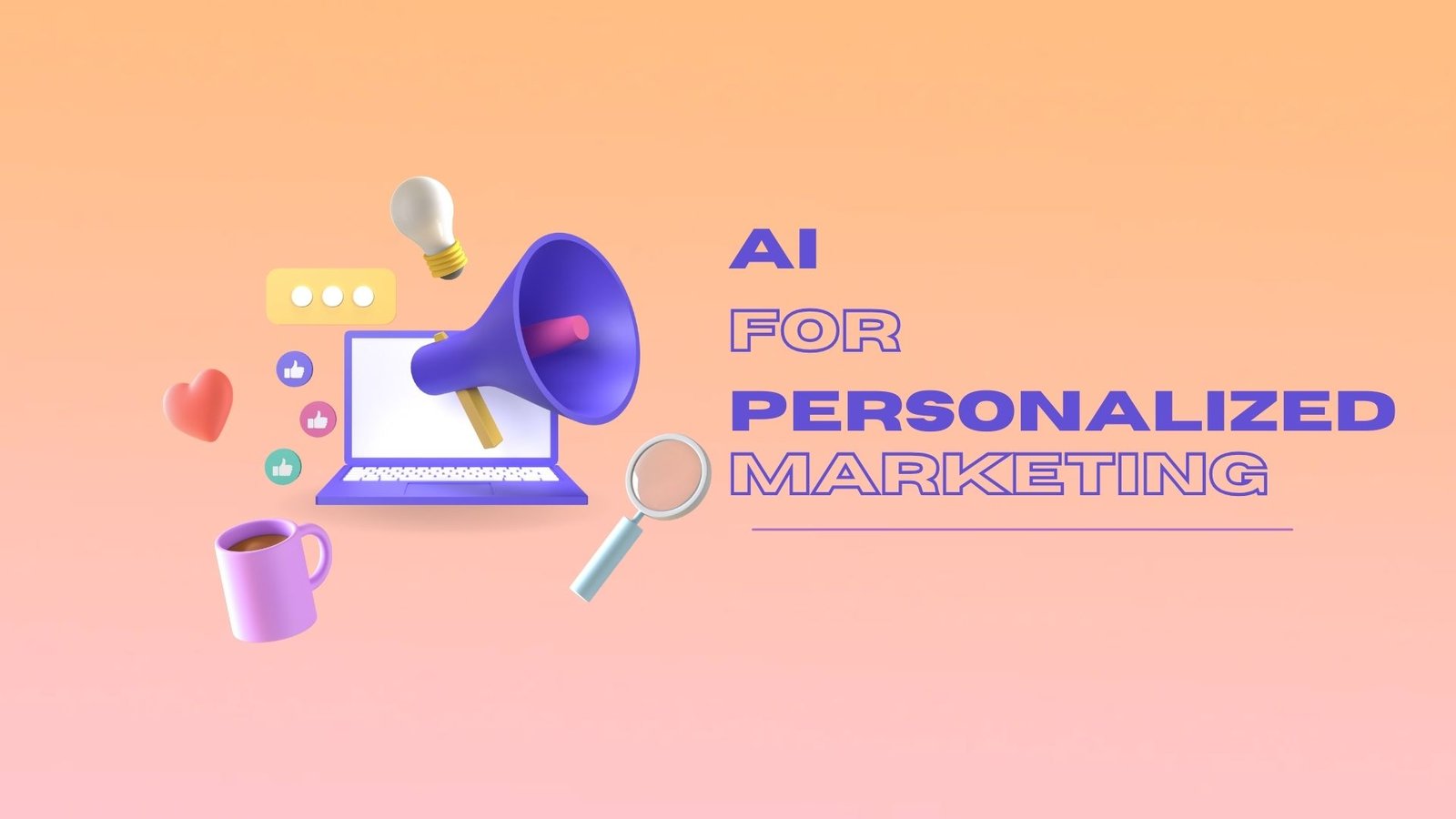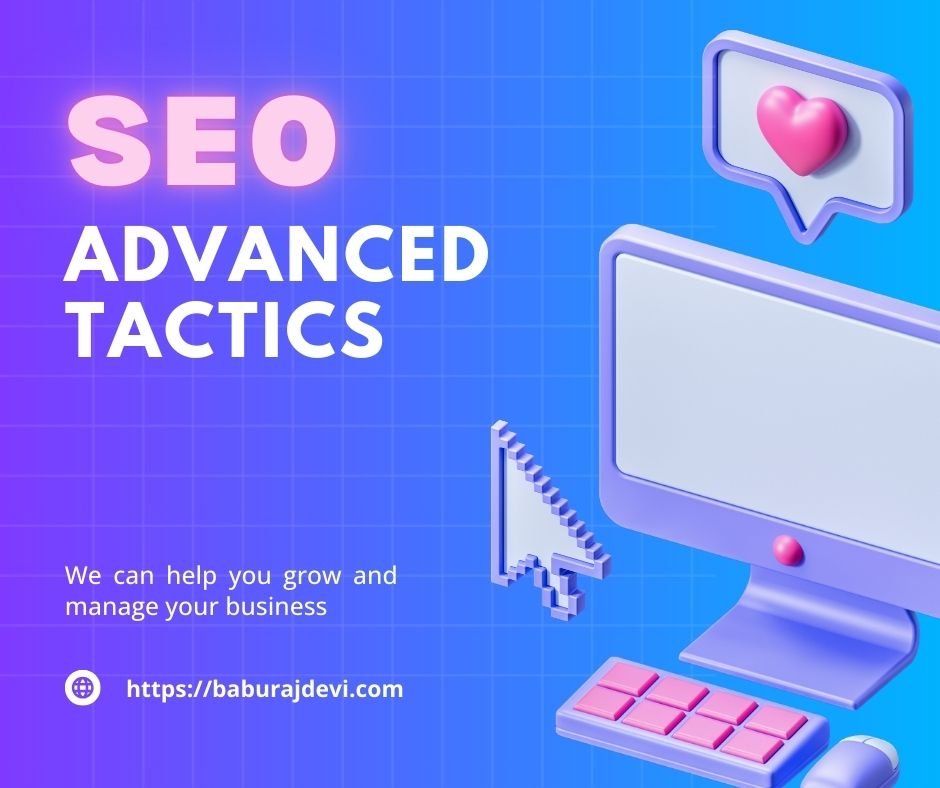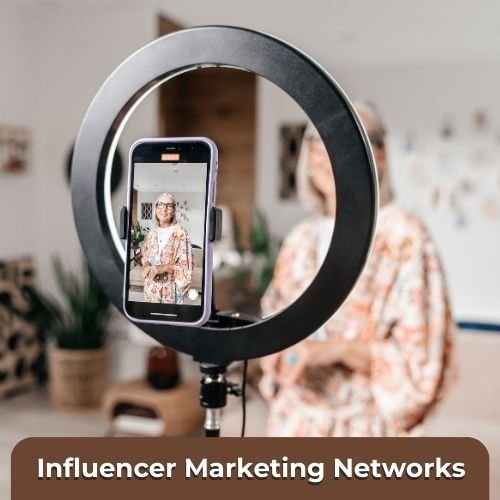In today’s fast-paced digital landscape, personalized marketing is no longer just an option—it’s a necessity. With an increasing number of brands competing for consumer attention, the ability to deliver customized content, tailored experiences, and hyper-targeted campaigns is essential for maintaining engagement and driving conversions. At the heart of this revolution is Artificial Intelligence (AI), which allows businesses to leverage data in unprecedented ways.
AI enables brands to understand customer behavior, predict future actions, and automate personalized marketing at scale. From automating customer interactions to optimizing advertising strategies, AI is transforming the way companies approach marketing. In this article, we explore the top 10 AI tools that help businesses create personalized marketing experiences, driving customer loyalty and revenue growth.
The Growing Importance of Personalized Marketing
Personalized marketing refers to tailoring marketing efforts to meet the individual needs and preferences of customers. Unlike traditional mass-marketing approaches, personalized marketing delivers content, product recommendations, and promotions based on specific customer data, such as previous interactions, browsing behavior, or purchase history.
Key Benefits of Personalized Marketing:
- Improved Customer Engagement: Personalized experiences resonate better with customers, leading to higher engagement rates across email, social media, and websites.
- Increased Conversion Rates: By presenting relevant offers and content, brands can significantly boost their conversion rates and sales.
- Customer Retention and Loyalty: Personalized interactions foster a sense of connection between the brand and the customer, encouraging repeat purchases and long-term loyalty.
- Better ROI on Marketing Campaigns: Targeted marketing reduces wastage, ensuring that marketing dollars are spent efficiently.
How AI Enhances Personalization
AI-powered tools analyze vast amounts of customer data in real time, identifying patterns and predicting future behavior. Machine learning algorithms enable businesses to automate segmentation, deliver real-time recommendations, and create individualized marketing messages. AI’s ability to process data at scale allows brands to continuously optimize marketing campaigns for better performance.
Let’s explore the top 10 AI tools that help marketers deliver personalized experiences efficiently and at scale.
Top 10 AI Tools for Personalized Marketing
1. HubSpot: The All-in-One Marketing Powerhouse
Features:
- HubSpot is an integrated marketing platform that includes tools for content management, email marketing, social media, and CRM.
- It uses AI to segment audiences and deliver personalized content based on behavior and customer data.
Personalization Power:
- Dynamic Content: HubSpot’s AI-driven features allow marketers to personalize emails, landing pages, and website content based on users’ activity and interests.
- Automated Workflows: AI enables the automation of marketing tasks, ensuring that relevant content reaches customers at the right time.
Use Case:
- For businesses looking to manage all marketing functions in one place, HubSpot provides a centralized platform that optimizes marketing automation and enhances personalized campaigns. A retail brand, for example, could use HubSpot to tailor email newsletters with personalized product recommendations.
2. Marketo: Advanced Marketing Automation
Features:
- Marketo is a robust marketing automation tool designed to help businesses target and nurture leads through personalized communication.
- It offers detailed lead management, email marketing automation, and analytics features powered by AI.
Personalization Power:
- Behavioral Targeting: Marketo tracks customer behavior across different touchpoints, helping marketers deliver tailored messaging based on user activity.
- Predictive Content: The tool’s AI features predict what content or offer will most appeal to a specific user, allowing for highly personalized campaigns.
Use Case:
- Marketo is ideal for B2B companies or complex sales cycles where nurturing leads over time is essential. For instance, a SaaS company can use Marketo’s AI-driven features to tailor onboarding content based on user behavior, increasing the likelihood of customer retention.
3. Salesforce Einstein: AI-Powered CRM Insights
Features:
- Salesforce Einstein is the AI component of Salesforce’s CRM, which uses data analytics and machine learning to provide insights and predictions.
- It can help optimize customer interactions, marketing campaigns, and sales activities by using predictive intelligence.
Personalization Power:
- Predictive Scoring: Einstein helps marketers predict which leads are more likely to convert, allowing for more personalized follow-ups and offers.
- Tailored Recommendations: AI-driven insights ensure that customers receive product or content recommendations that match their preferences.
Use Case:
- Salesforce Einstein is perfect for businesses with large customer databases, such as retail or eCommerce, where personalized recommendations based on past behavior can drive higher engagement and sales.
4. Optimizely: The Personalization and Experimentation Platform
Features:
- Optimizely is a digital experience platform that allows brands to optimize their websites and apps through A/B testing and personalization.
- It enables marketers to run experiments, collect data, and apply AI to improve user experiences.
Personalization Power:
- A/B Testing with AI: Optimizely uses AI to analyze data from A/B tests and predict which content or layout will perform best for different audience segments.
- Real-Time Personalization: The platform adapts content in real-time based on user behavior, ensuring a personalized experience for each visitor.
Use Case:
- Optimizely is perfect for businesses looking to continuously improve the user experience on their websites. For example, an eCommerce business can use Optimizely’s AI-powered tools to test various product page layouts and personalize the shopping experience for each visitor.
5. Adext AI: AI-Driven Advertising Optimization
Features:
- Adext AI is a digital advertising platform that automates the management of ad campaigns on platforms like Google Ads, Facebook, and Instagram.
- It uses AI to optimize ad spending, targeting, and messaging, ensuring that ads are delivered to the right audiences at the right time.
Personalization Power:
- Automated Targeting: Adext AI analyzes the performance of ads in real time and automatically adjusts targeting to ensure optimal reach and engagement.
- Optimized Ad Spend: The platform uses machine learning to adjust ad budgets, ensuring that each dollar is spent effectively on high-converting audiences.
Use Case:
- Adext AI is ideal for businesses that run large-scale ad campaigns across multiple platforms. For instance, an online retailer can use Adext AI to automate and optimize their social media and search engine ads, driving more personalized outreach and higher returns on investment.
6. Persado: The AI-Powered Language Generator
Features:
- Persado uses AI to create compelling marketing messages by analyzing the emotional impact of language.
- It generates personalized copy for emails, ads, and social media posts by selecting words and phrases that are proven to resonate with specific audiences.
Personalization Power:
- Emotion-Driven Language: Persado’s AI helps marketers craft messages that are tailored to evoke the desired emotional response, leading to higher engagement.
- Automated Content Creation: The tool generates variations of headlines, subject lines, and ad copy, optimizing for personalization and performance.
Use Case:
- Persado is especially useful for businesses in industries where emotional appeal drives conversions, such as fashion, beauty, or luxury goods. A cosmetic brand, for example, can use Persado to create personalized marketing emails that connect with customers on an emotional level.
7. Dynamic Yield: Real-Time Personalization Across Channels
Features:
- Dynamic Yield is a powerful personalization platform that uses AI to deliver real-time, individualized experiences across websites, mobile apps, and emails.
- It allows businesses to create targeted content and product recommendations based on user behavior.
Personalization Power:
- Real-Time Personalization: Dynamic Yield’s AI can adjust website content or product recommendations based on the real-time actions of users, ensuring a highly personalized experience.
- Omnichannel Consistency: The tool allows for seamless personalization across multiple channels, ensuring that users receive a consistent experience whether they’re on a website, app, or receiving an email.
Use Case:
- Dynamic Yield is ideal for businesses that need to maintain consistent personalization across various digital touchpoints. For example, a travel company could use Dynamic Yield to provide personalized travel recommendations on its website and mobile app based on a customer’s search history and preferences.
8. BlueConic: Customer Data Platform for Personalization
Features:
- BlueConic is a customer data platform (CDP) that helps businesses collect and analyze customer data in real-time to deliver personalized marketing experiences.
- The platform unifies data from different sources, allowing for a 360-degree view of the customer.
Personalization Power:
- Unified Customer Profiles: BlueConic creates detailed customer profiles by aggregating data from various channels, enabling marketers to deliver personalized content based on a complete view of each customer.
- Real-Time Targeting: The platform’s AI analyzes customer behavior in real-time to tailor messaging and offers.
Use Case:
- BlueConic is perfect for businesses that rely on deep customer insights for personalization. A financial services company, for instance, could use BlueConic to personalize communications based on a customer’s financial behavior, providing relevant product recommendations.
9. Algolia: AI-Powered Search and Discovery
Features:
- Algolia is a search and discovery API that uses AI to deliver personalized search results and recommendations for websites and apps.
- The platform optimizes the search experience by providing relevant results based on user behavior and preferences.
Personalization Power:
- Search Personalization: Algolia’s AI algorithms learn from user behavior to deliver personalized search results, making it easier for customers to find the products or content they’re looking for.
- Tailored Recommendations: In addition to search, Algolia provides personalized product or content recommendations based on previous interactions.
Use Case:
- Algolia is particularly useful for eCommerce websites or content-heavy platforms. For instance, an online bookstore could use Algolia to personalize the search experience, showing customers books based on their browsing history and preferences.
10. Zaius: Customer-Centric Personalization Platform
Features:
- Zaius is a customer data platform focused on B2C marketing that helps brands understand and engage with their customers.
- It combines customer behavior insights with marketing automation to deliver personalized experiences across channels.
Personalization Power:
- Behavioral Insights: Zaius tracks customer interactions across websites, emails, and other channels, allowing marketers to create personalized campaigns based on behavioral data.
- Automated Campaigns: The platform’s AI automates the creation and execution of personalized campaigns, ensuring timely and relevant communication with customers.
Use Case:
- Zaius is ideal for consumer brands looking to build deep connections with their customers. For example, a fashion retailer could use Zaius to tailor email campaigns based on customers’ browsing and purchase history, driving higher engagement and repeat sales.
Challenges of Implementing AI in Personalized Marketing
While AI has transformed personalized marketing, it’s not without challenges:
- Data Privacy: Collecting and using personal data for AI-driven marketing raises concerns about data privacy. Companies must comply with regulations like GDPR to ensure that they handle customer data ethically.
- Integration Issues: Many businesses struggle with integrating AI tools with their existing systems, such as CRMs or content management platforms.
- Data Quality: AI’s effectiveness relies on the quality of the data it analyzes. Incomplete or inaccurate data can lead to suboptimal personalization efforts.
- Cost and Complexity: Implementing AI technology can be expensive and requires technical expertise. For small businesses, the costs may outweigh the benefits.
Overcoming These Challenges
- Focus on Data Quality: Ensure that your data is clean, accurate, and relevant. Invest in tools that help collect and organize data effectively.
- Transparency: Be transparent with customers about how their data is used and offer them control over their data.
- Start Small: Begin with simple AI tools and scale up as you gain more experience and resources.
The Future of AI in Personalized Marketing
As AI continues to evolve, its role in personalized marketing will only grow stronger. Here are a few trends we can expect to see in the future:
- Hyper-Personalization: AI will enable even more precise targeting, delivering hyper-personalized content that speaks to individual customer preferences in real time.
- Voice and Visual Search: AI-powered voice and visual search will become more prevalent, offering new ways for customers to interact with brands and for marketers to deliver personalized experiences.
- AI Ethics: As AI becomes more integrated into marketing strategies, companies will need to adopt ethical AI practices, ensuring transparency, fairness, and accountability.
- Augmented Reality (AR) and Virtual Reality (VR): AI will play a crucial role in personalizing AR and VR experiences, allowing brands to create immersive, individualized customer interactions.
Conclusion
AI has revolutionized personalized marketing by enabling businesses to deliver tailored experiences at scale. From automation to real-time targeting, the tools highlighted in this article provide powerful solutions for businesses looking to enhance their marketing efforts. By leveraging AI for personalization, brands can improve customer engagement, drive conversions, and foster long-term loyalty.
As AI technology continues to evolve, the opportunities for personalized marketing will only expand, making it an essential part of every marketer’s toolkit.




